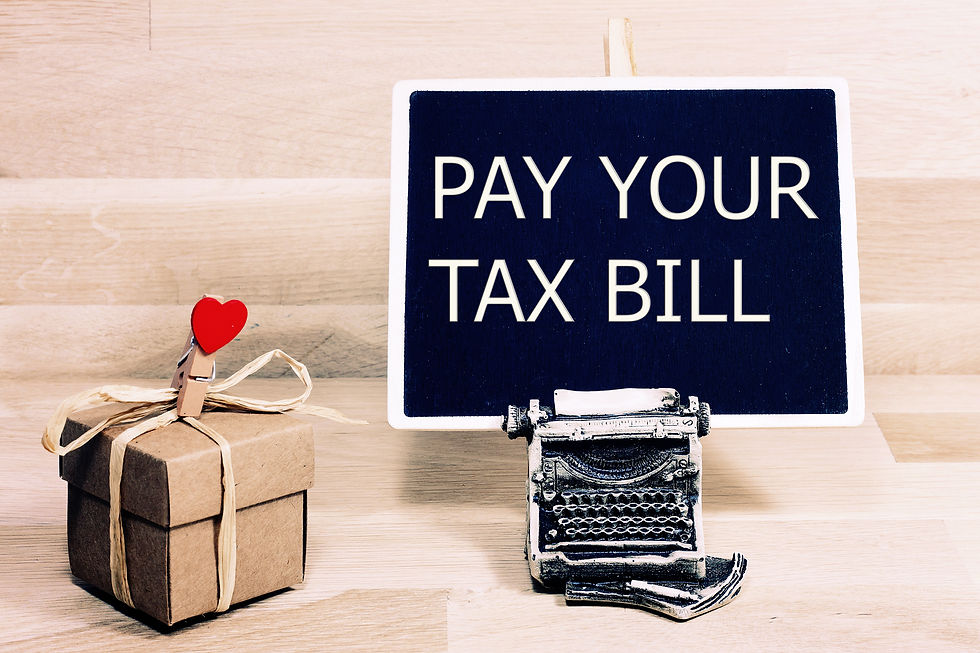What is a payment on account?
- Dec 30, 2022
- 2 min read
Updated: Aug 13, 2025
Well, it's a fair enough question!
This is the bit of running your own business that nobody enjoys. Finally getting organised enough to send over your books and papers to your accountant, and see how you’ve done. You think you’ve made a profit, (and indeed you have!), and then the good news. You’re now the proud owner of a whopping great bill. Oh dear.
(let’s leave the conversation about bringing your records in sooner for another time).

What is the payment on account?
Well, it’s basically a way of paying your tax bill in advance, namely in two payments. They are 50% of your previous tax bill each, and made in both January and July..
Let's look at an example:
Your tax bill for the 2024-25 tax year was £3000, and you made two payments on account of £900 each during the previous year towards that bill.
So, on 31st January 2026, you’ll pay £2700.00.
This is made up as follows:
£3000 liability less the £1800 payment on account = £1200, which is called a ‘balancing payment’
Plus
The first payment on account of £1500 (£3000 liability/2) will also be due on 31/01/2026.
Then a further £1500 would be due in the July of the same year.
Just to really illustrate this, your payments would look like this:
31/01/2026 Balancing payment £1200.00
31/01/2026 1st payment on account £1500.00
31/07/2026 2nd payment on account £1500.00
The good news
If your tax bill for the previous year was under £1000, then no payments on account are due. Similarly, if in the previous tax year, 80% or more of your tax was deducted at source, no payments on account are due.
What if my profits aren't up to scratch?
This happens. You have a great year, then, for whatever reason, the next year is just a real struggle. And added to your cash flow woes/reduced sales, you have to find the funds for that enormous payment on account.
Not to worry. You can reduce the payment on account. Just either log into your HMRC account or use form SA303.
A Word of caution:
I’d recommend consulting your accountant, or doing some decent calculations yourself before you take action. Many individuals are tempted by this course of action because they’re struggling to pay their tax bills, and HMRC takes this very seriously. If it’s found that your tax bill would have been the same figure, you’ll receive a bill for the interest on the outstanding amount. And who wants that?
I’d strongly advise putting money aside each month towards your tax bill, and checking your HMRC account on a regular basis. Select the option to ‘View Statements’, and you can view the payments on account that you’ve already made, together with any tax due.
If you’re at all confused, contact either your accountant or HMRC for clarification.
Contact HMRC
Their number (although I'm quite sure that you have them on speed dial) is 0300 200 3822.
Finally
If you want more information about payments on account, please send an email to hello@wedothebooks.co.uk





Comments